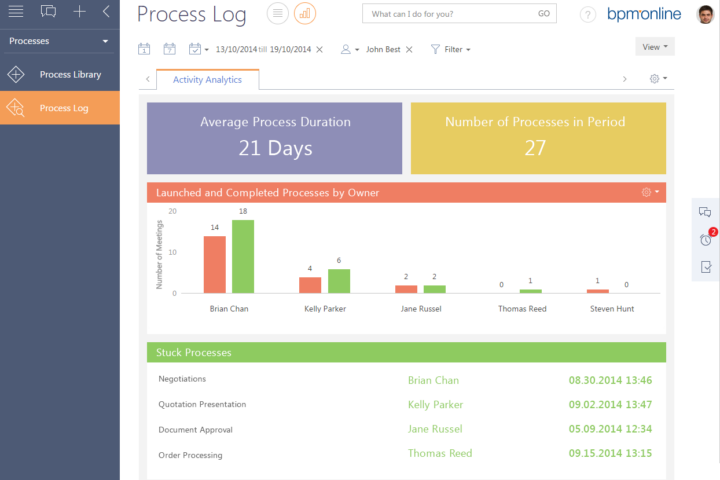Small businesses benefit greatly from automating marketing functions. There is no denying the fact that automation saves money by eliminating the need for numerous marketing assistants and other support personnel to do the necessary tasks of constant customer contact and market research. Small business owners and managers who are often overworked now have the marketing tools necessary to compete with larger businesses who have the resources to hire large teams to dive into every aspect of marketing.
Below are some of the ways marketing automation levels the playing field for small business owners:
1. Automation efforts improve customer communication.
Small companies often suffer from an inability to consistently market to their customers. What happens in smaller businesses is that operational matters related to fulfilling current customer needs take priority over new customer acquisition efforts. Marketing automation solves this problem by taking the human capital factor out of the equation. Ongoing business success depends on sustainable and consistent marketing efforts.
Automated emails and a relevant social media presence can be automated so that businesses stay in front of their customers even when they are otherwise engaged. Marketo is an example of a marketing program that promotes customer engagement via email, mobile marketing, and digital ad campaigns while tracking web and marketing metrics to improve future results. Essentially, Marketo can manage millions of marketing activities each and every day, effectively replacing hundreds of employees.
2. Marketing automation increases marketing efficiency.
Marketing efficiency means earning a higher ROI. Small businesses are dependent on an efficient marketing business model if they expect to compete. Being in a position to continually market to prospective customers and to follow up with them is essential. Assuming that most small businesses are hardly in a position to hire an entire marketing department to perform the many duties necessary for getting results in a competitive business landscape, automation is the logical answer.
Software packages are now available that can do many of the things people had to do in the past. Many of these tools provide a viable platform for prospecting, market research, metric analysis and lead generation.
3. By employing the use of automation, more leads and higher-quality leads are produced.
Due to the consistent marketing efforts possible using different marketing software packages, more high-quality prospects are identified. Personalization is used to reach out to potential customers in the way they want to communicate. Automated products collect this type of data so that the sales tool used to reach out to them matches that customer’s preferences. Some customers respond to emails while others prefer text messaging.
Knowing a customer’s communication preferences increases the odds of establishing a relationship with them. Delivra is an example of a platform that was designed to improve customer engagement by collecting this type of information.
4. Utilizing marketing automation platforms allows small companies to conduct ongoing customer and market research with limited resources.
Every marketing executive knows that information is power. The more information you can gather on your customer, the easier it is to design marketing campaigns that will appeal to them. Streamlined processes encourage the collection of customer data that can be used to form a customer database as soon as a business opens its doors for business.
The good news is that small businesses have the advantage over large businesses to take new data and adjust quickly for better results. The single best option for small businesses to overcome the time limitations consistent with a small staff is to automate.
5. Software support promotes consistent messaging across multiple channels for branding purposes.
One of the marketing challenges companies face is to align marketing efforts so they send out messages consistent with the brand’s image. Considering the amount of money that is invested in advertising and branding, it is crucial that the desired message is getting to the prospective customer. Competing messages are a problem and can easily creep in when there is a lot of activity that goes unchecked.
Inconsistent messaging can happen when there are a lot of different marketing managers in charge of different aspects of the marketing effort. Automation eliminates the need to have a lot of different people involved. People with different interpretations acting on their own without the necessary checks and balances required to police marketing inconsistencies can create this type of problem.
6. Software and automated solutions use proven methods, time-tested by marketing professionals to bolster marketing efforts and results.
One reason business owners like the idea of an automated system is because they say they don’t have the marketing expertise they need to set up a state-of-the-art system on their own. 47 percent of business owners cite a lack of marketing expertise as a stumbling block to their success.
Ontraport is an example of a tool that offers important customer insights that facilitate customization of marketing campaigns. The analytics feature of this platform helps business owners use historical data to project future success or failure.
Automation has definitely changed the business world, transforming the landscape into a more friendly environment for small businesses. Hiring a professional marketing team is not feasible for many new businesses operating with limited budgets. That’s where automation comes in to save the day. It takes the guesswork out of the complicated and ever changing world that is marketing in a digital age.



